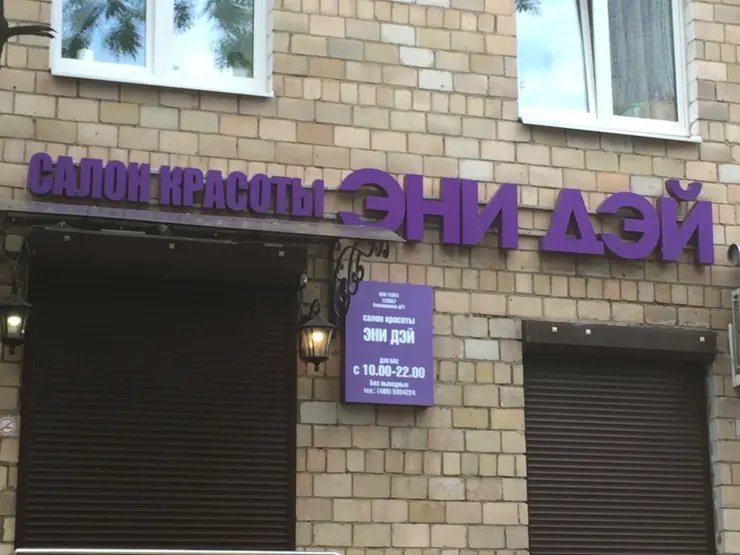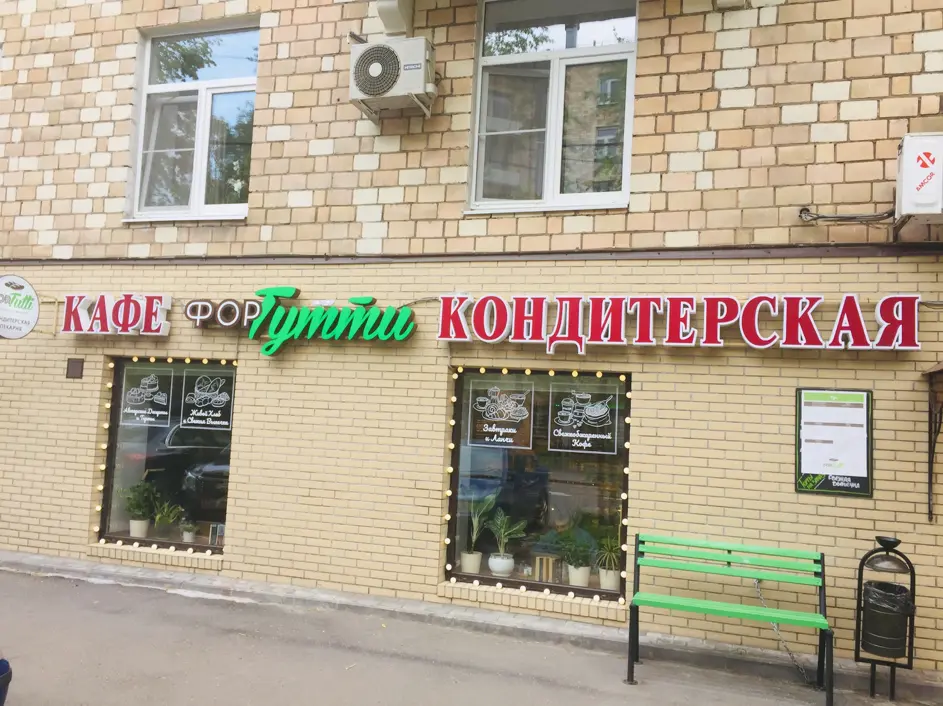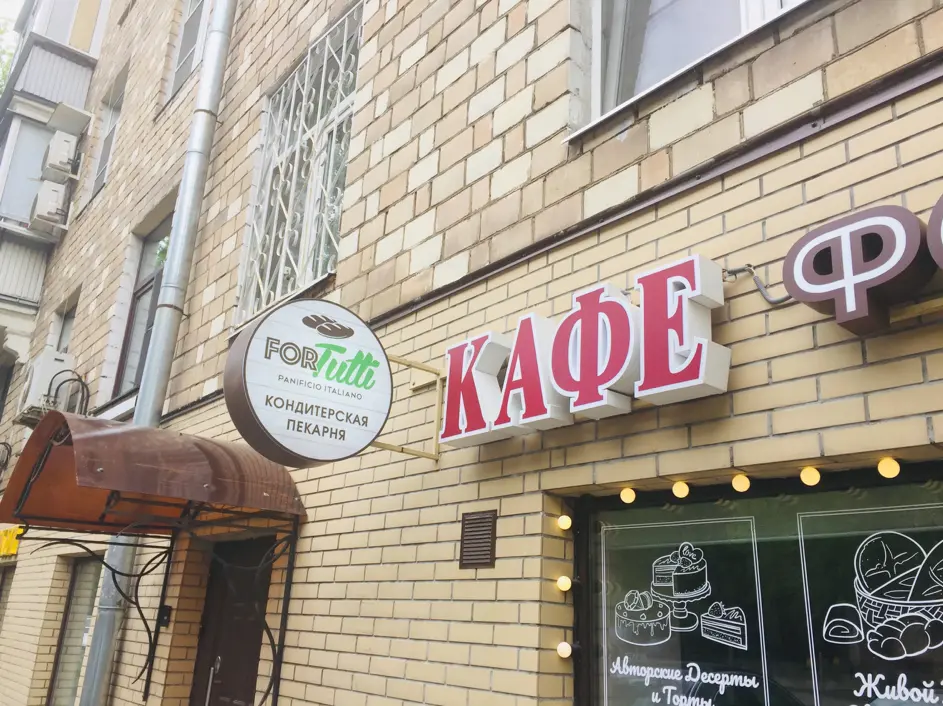Any Day
// Holt Meyer – 10.07.2019
In my first West Window I collected signs of London. Now I turn to Moscow, a city which once in the past had and perhaps once again has ambitions of being the power center of a “non-western” empire.
I see a sign in this Moscow, not far from the Catholic Cathedral and the Metro Station “Krasnopresnenskaja”, and I read its main words – the unique name of a business: Эни дэй.
For those who do not read Cyrillic letters: Ėni dėj.
If you look at the scholarly transcription, it looks neither Russian nor English. In reality (whatever that reality might be) it is both and neither. One might say that the words look somehow ‘Eastern’, perhaps coming from some Turk language. I ask here the sense in which these words are a "West Window".
Let us read further.
Continuing down the sign from top to bottom, we see words are also translated into Russian. The white letters on the purple sign below the large purple letters read, among other things, "bez vykhodnykh". Literally – no holidays. Basically: "open every day"… or, as the business’s name promises: "any day". According to the sign, you can come … "any day" to this "salon krasoty" (literally "salon of beauty", most likely a Russian calque of the English term "beauty parlor") between 10am and 10pm.
The photo was taken just before 9am on May 14th, 2019 – there is no reason to believe that the sign is inaccurate (though I have to admit that I did not go back and check).
One jog (originally a very Western thing to do) on a mid-May morning in Moscow, and (perhaps) coincidentally a whole range of West-in-Cyrillic opportunities emerge, (perhaps) accidentally in the immediate vicinity of Moscow’s largest Roman Catholic Church.
And speaking of Rome:
The operation might be called: transcription, overwriting, splicing. The product might be called: a montage of natural and cultural languages.
It is hard to deny that the "West" in its Italian version is a selling point, a motor for the circulation of rubles.
In the London West Window I wrote of how in all sorts of Brexit announcements and non-announcements (and it still hasn’t happened, that Brexit), Russia could be seen as hiding under the bed, but somehow present. Here the tables are turned. We are in Moscow, but "any day for tutti" has something like "the West" breaking through to the surface of what you perceive (see, smell, hear) on the streets.
Like the Cyrillic names of actors in the credits of "The Americans" are overwritten by their "real" Latin-lettered spellings (particularly oddly in the case of "Costa Ronin"), we are looking at overwrites. In contrast to the ostranenie and oddness of those signs leading into the 1980s, these overwrites at the end of the 2010s, 40 years later, are meant to be ‘natural’, to draw customers into consuming a cut of hair, a slice of bread, everything a modern Moscower needs to move around this social sphere in all of its curious "internationality".
I am guessing that the potential link of "for tutti" to the Roman Catholic Cathedral down the street – in all of its programmatic universality – is lost on the proprietors of that particular business... but who knows.
The West Window in this case is a play on the West as the non-other. On the West as a universal perspective of the flow of capital. It presents us with a utopia of all times (any day) and all people (tutti) in the joy of beauty and abundance.




